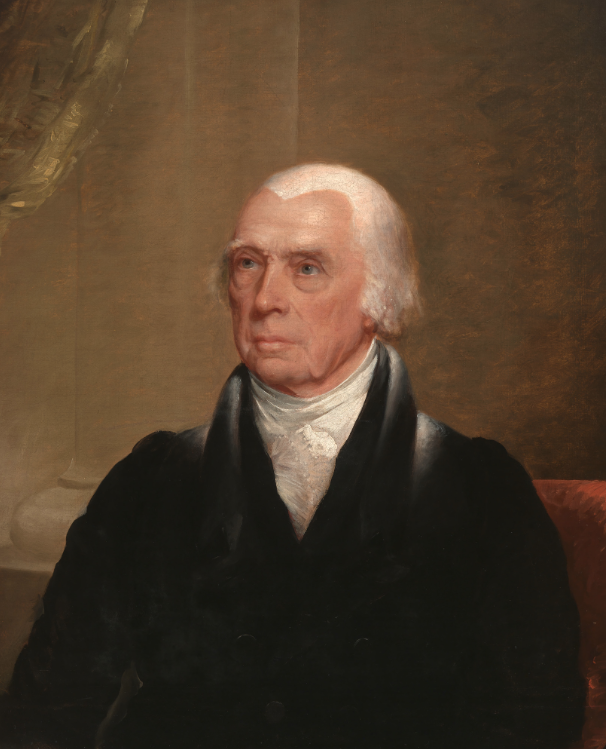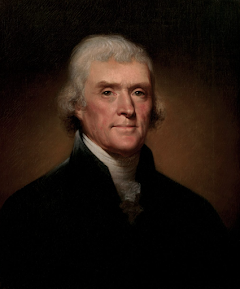Jeffersonian Project: James Monroe
Daniel Goodman
M/J United States History
Ms. Kooiker
6/13/23
Jeffersonian Project: James Monroe
James Monroe is one of the three Jeffersonian presidents
and is the last of them to be elected (“James Monroe - White House”). He was born in
Westmoreland County, Virginia, on April 28th, 1758 (“A Brief
Biography of James Monroe”). His parents were Elizabeth and Spence Monroe,
however they both passed away during Monroe’s childhood in a close time range
between each other (“James Monroe - White House”). After getting his education, Monroe
eventually started to study law with Thomas Jefferson after serving three years
in the army (“A Brief Biography of James Monroe”).
Monroe’s role in politics would begin when he was elected to be a member of the Virginia General Assembly in 1782 (“A Brief Biography of James Monroe”; “James Monroe - White House”). From there, he rose in the ranks, ranging from participating in the Confederation Congress to becoming a Secretary of State in Virginia (“A Brief Biography of James Monroe”). However, Monroe would eventually attain presidency in 1816, after over thirty years of public service (“A Brief Biography of James Monroe”; “James Monroe - White House”). He served two full terms and died on July 4th, 1831 (“A Brief Biography of James Monroe”).
The
accomplishments that Monroe achieved, however, are nothing short of revolutionary.
The first one of these achievements would have to be that he expanded the
United States, specifically by acquiring the state of Florida (Preston). He did
this in 1819 through negotiating a deal of buying it for five million dollars,
and the purchase was ultimately meant to solve conflicts within the state
(“James Monroe – Presidency”; Preston). Additionally, another plus that came
out of this deal was that relations with Spain became better as a result (“James
Monroe – Presidency”).
A
second great accomplishment Monroe had was the Missouri Compromise, which made
slavery against the law in certain areas (“James Monroe – Presidency”;
Preston). For example, the Missouri Compromise made the practice of slavery
illegal upwards of the 36°30′ line within the Louisiana Territory (“James
Monroe – Presidency”). The law also made it so that Maine could join the Union
as a free state, while Missouri could join as a slave state (“Missouri
Compromise”). This was also in a time when slavery was slowly becoming banned
across the nation, representing the further decline of the practice in general
(“James Monroe – Presidency”; Preston).
One final accomplishment Monroe had would have to be the
Monroe Doctrine, which he proclaimed in 1823 (“A Brief Biography of James
Monroe”). It came partially after a desire of wanting to demonstrate the escalating
power that the United States had, and it was unsurprisingly effective (“James
Monroe – Presidency”). The doctrine basically said that the Europeans would not
be allowed to intervene in American continents, and vice versa (“James Monroe –
Presidency”; Preston). Overall, Monroe’s accomplishments have helped further
establish and develop the United States of America, whether it come to law or general
expansion (“James Monroe – Presidency”).
However, Monroe did not have that substantial of an
impact on American democracy itself. There are only a few changes he has
brought about to the government, and with some being miniscule (“James Monroe –
Presidency”). Despite this, however, I believe that there are still some
notable points about what his presidency has changed. For example, Monroe shifted
democracy from being tied to European policy to being entirely independent (“James
Monroe – Presidency”; Preston).
This was due to, as aforementioned, Monroe dealing
with foreign policy and pronouncing the Monroe Doctrine (“A Brief Biography of
James Monroe”). Another thing that the Monroe Doctrine affected, and something
else that Monroe impacted would have to be the power that the role of president
had (Preston). Monroe practically made it stronger by making use of his own
power for the Monroe Doctrine, and due to this, he ultimately gave more
power to the role (“James Monroe – Presidency”; Preston). This is partially due
to how effective the Monroe Doctrine was, and because of the way Monroe dealt
with Foreign Policy (Preston).
In conclusion, Monroe has brought about a few changes to
American democracy through an array of means. For example, he made the power of
the presidency stronger, and additionally helped the government and nation shift
to being more independent (“James Monroe – Presidency”; Preston). Even though
Monroe has not had that much of an impact in comparison to someone like
Jefferson, he has still done some beneficial things for the nation. Without him,
the nation would be a lot more dependent, and potentially have less power in
the grand scheme of things (Preston).
“A Brief Biography of James Monroe - Highland.”
James Monroe Highland, 2023, highland.org/discover-monroe. Accessed 13
June 2023.
“James Monroe - White House Historical Association.” The White House
Historical Association, 2023, www.whitehousehistory.org/bios/james-monroe.
Accessed 13 June 2023.
“James Monroe - Presidency, Facts and Political Party.” History, 7 June 2019, www.history.com/topics/us-presidents/james-monroe. Accessed 13 June 2023.
“Missouri Compromise: Date, Definition and 1820 - HISTORY.” History, 29 Oct. 2009, www.history.com/topics/slavery/missouri-compromise. Accessed 13 June 2023.
Preston, Daniel. “James Monroe: Impact and
Legacy | Miller Center.” Miller Center, 4 Oct. 2016, millercenter.org/president/monroe/impact-and-legacy.
Accessed 13 June 2023.
Vanderlyn, John. “James Monroe.” National Portrait Gallery, 1816, npg.si.edu/object/npg_NPG.70.59. Accessed 13 June 2023.



Comments
Post a Comment